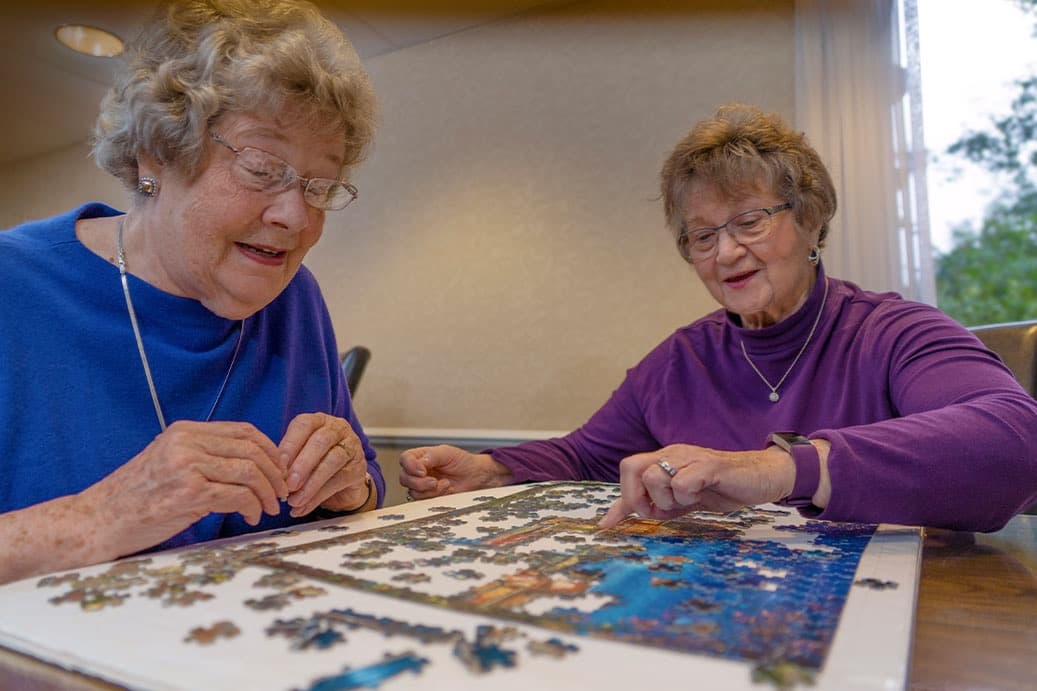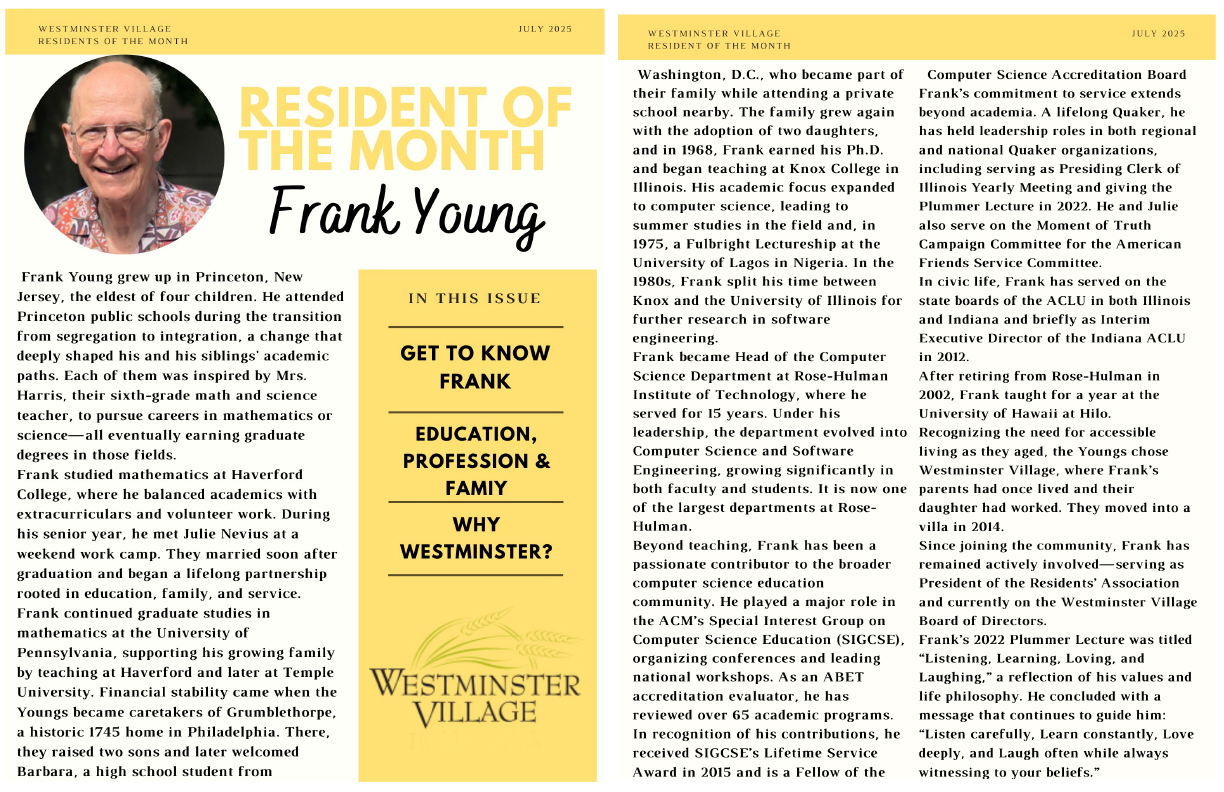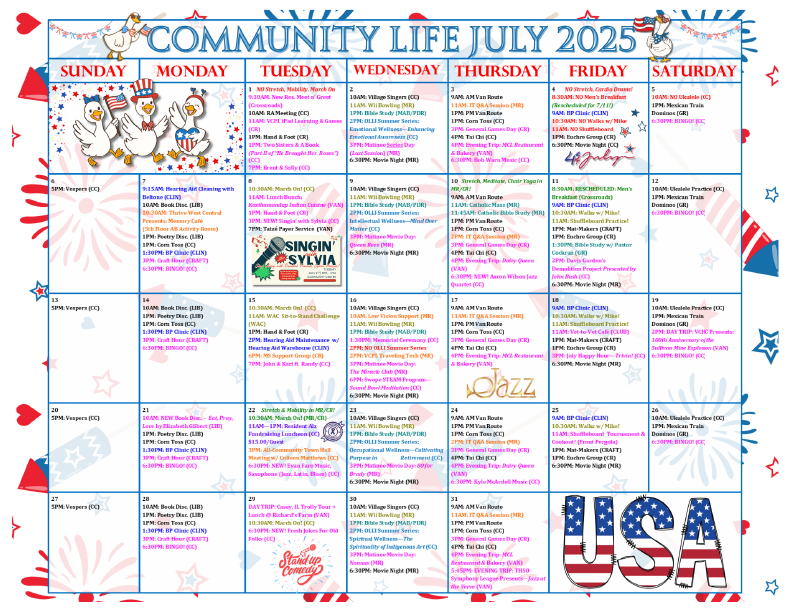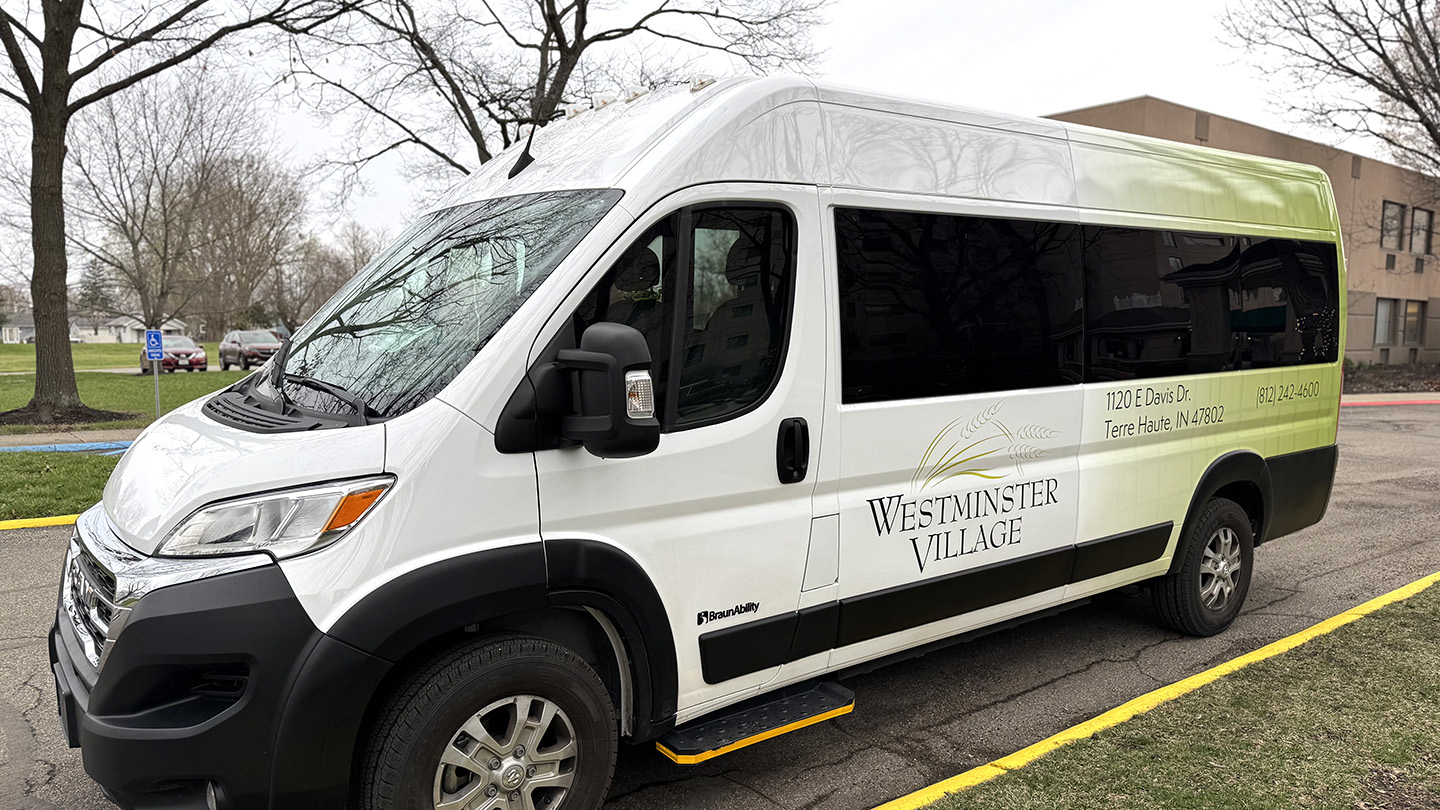
One of the most rewarding aspects of choosing independent living at Westminster Village Terre Haute is the wealth of social opportunities within our vibrant community. At Westminster Village, we believe that social engagement is essential to our residents’ overall well-being. That’s why we’re dedicated to creating an environment where meaningful connections are happening, and residents can thrive socially. In this blog, you’ll discover the diverse social opportunities that make our community unique.
A Full Community Life Calendar
Our community life calendar is thoughtfully designed to offer a variety of events and activities that cater to the diverse interests of our residents. Whether you’re looking to explore a new hobby, deepen an existing passion, or simply meet new friends, Westminster Village provides countless opportunities to live life to the fullest. For those with a creative flair, we offer music lessons, poetry clubs, and art classes, providing the perfect outlets to express yourself and connect with others who share similar interests. Residents seeking adventure can join day trips to nearby cities, exploring cultural landmarks and enjoying local cuisine. These activities create opportunities to create deeper bonds with fellow residents while making cherished memories. Each activity is carefully planned to encourage interaction and foster belonging. Whether you’re engaging in a lighthearted crafting session or embarking on a scenic outing, these moments help paint a vibrant and fulfilling picture of life at Westminster Village.
If you’d like to see the full scope of our events, click here.
Dining Engagements
Dining at Westminster Village is more than just a meal; it’s a social experience that brings residents together in a warm and inviting setting. The Crossroads Dining Room is at the heart of this experience, offering a flexible and nutritious menu crafted by our professional culinary team. Here, residents gather not only to enjoy delicious cuisine but also to share stories, laughter, and camaraderie. For special occasions, The Club Room provides an elegant venue for residents to host celebrations or intimate gatherings with friends and family. These moments of connection over a shared meal help foster meaningful relationships and create a sense of community that enriches daily life. Whether it’s a casual lunch with a new friend or a festive dinner with loved ones, dining at Westminster Village is an opportunity to savor both the flavors of life and the joys of companionship.
Here’s what to expect when dining at Westminster Village
Westminster Athletic Club
Physical fitness is a cornerstone of healthy aging, and the Westminster Athletic Club provides a space where residents can stay active while enjoying the company of others. The club offers a variety of fitness equipment and programs tailored to meet the needs of our community, making it easy for everyone to participate. Engaging in regular physical activity not only enhances physical health but also supports emotional and social well-being. Exercise has been shown to boost cognitive function, improve mood, and increase self-confidence. At the Athletic Club, residents can participate in group exercise classes, share fitness goals, and celebrate milestones together, fostering a sense of accomplishment and camaraderie. From light aerobics to strength training, our fitness programs are designed to be inclusive and enjoyable. Residents often find that these sessions become highlights of their week, providing an excellent opportunity to stay active while building friendships in a supportive setting.
Another perk of being a part of the Westminster Athletic Club is that you gain access to our on-site, NIFS (National Institute for Fitness and Sport) certified Fitness Manager. This allows you and your workout partners to enjoy physical fitness with peace of mind, as our fitness manager serves as a guide to safe and effective exercise. You’ll receive a personalized plan from our fitness manager—your own prescription for nutrition, functional movement and exercise to help you feel better, build confidence and experience life! Our fitness manager is also available for some one-on-one sessions.
Experience Westminster Village for Yourself
The social opportunities at Westminster Village extend far beyond scheduled events, meals, and fitness classes. From spontaneous conversations in common areas to shared hobbies and interests, our community is designed to nurture connection and camaraderie at every turn. Residents are encouraged to pursue their passions, explore new interests, and engage with their neighbors to create a fulfilling and enriched lifestyle. Our community’s welcoming atmosphere ensures that everyone feels included and valued. Whether you’re a lifelong extrovert or someone looking to expand your social horizons, there’s a place for you here at Westminster Village. Contact us today to learn more about how you can start your next chapter at Westminster Village, where social opportunities abound, and vibrant living takes center stage.
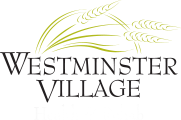
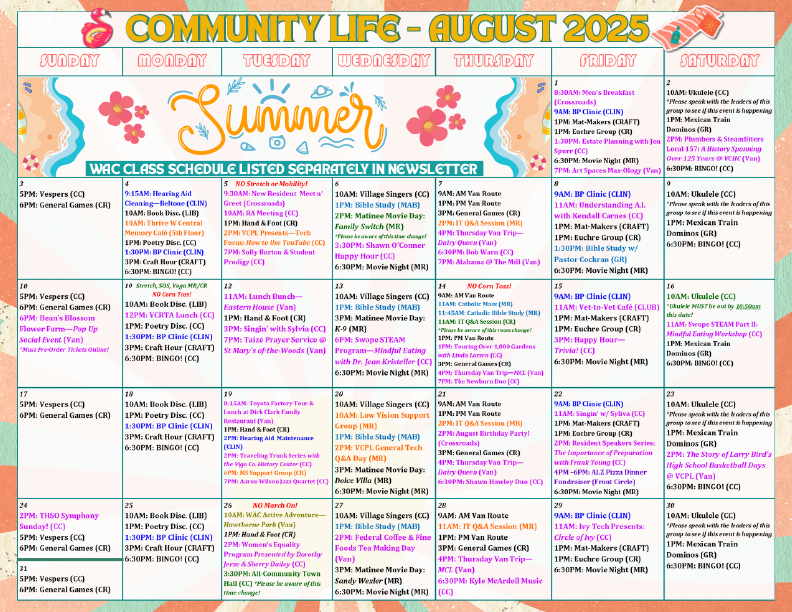
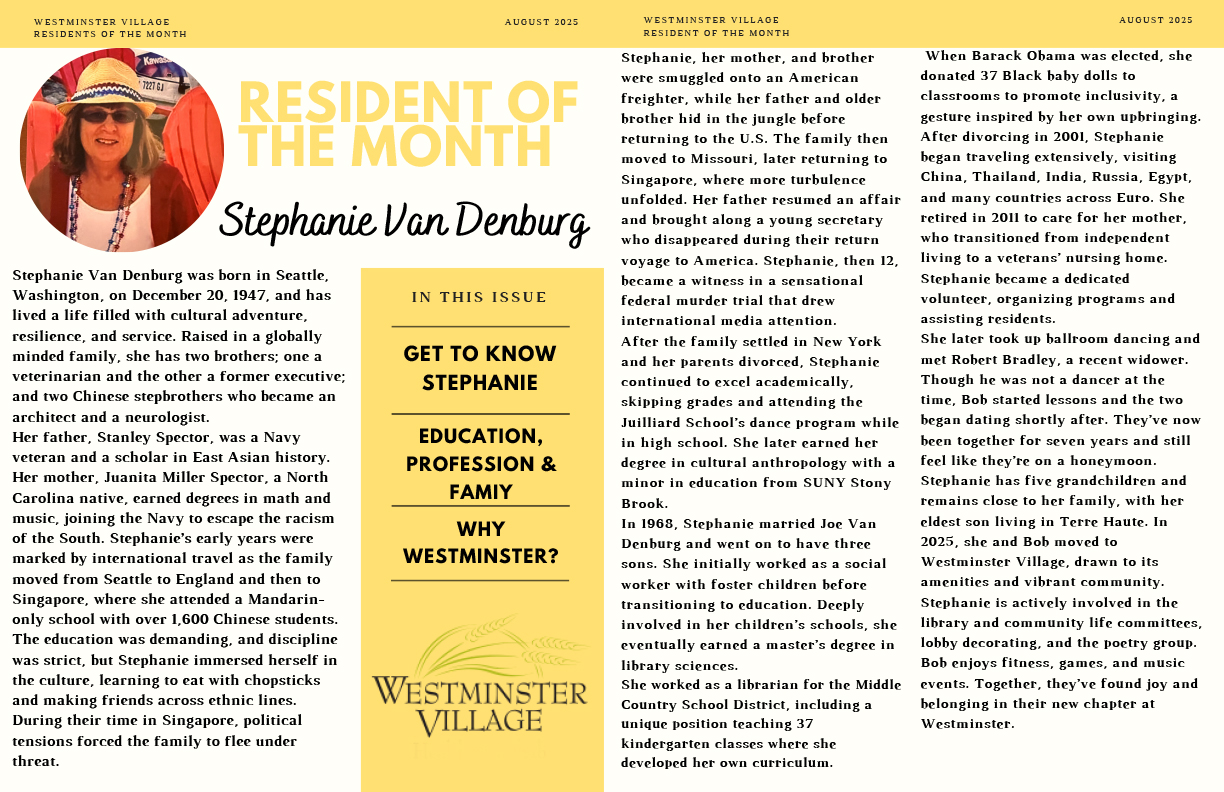
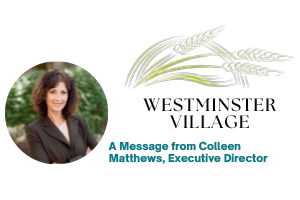 As we reflect on our progress and look ahead, we want to share updates about the future of Westminster Village Terre Haute.
As we reflect on our progress and look ahead, we want to share updates about the future of Westminster Village Terre Haute.